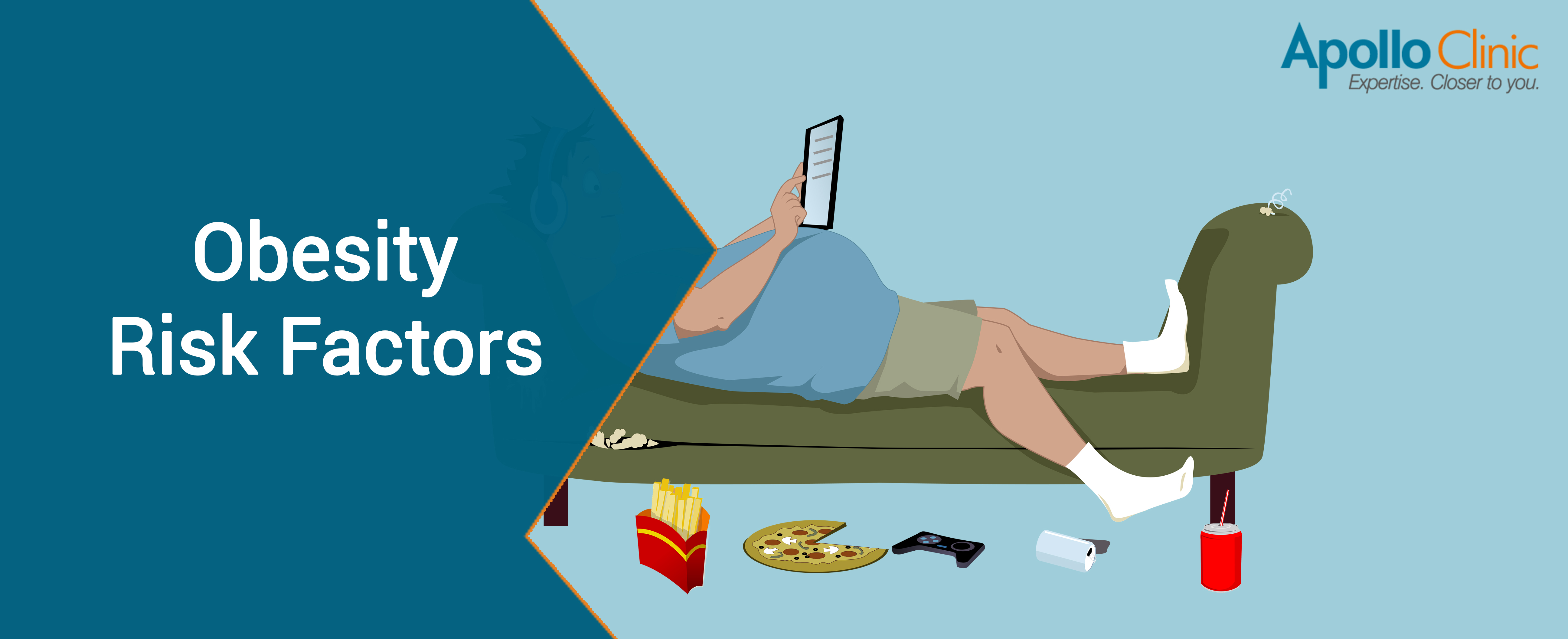Obesity is a serious problem. People with obesity are at risk of developing obesity-related diseases. It is the result of consuming excess calories without being able to use them or burn them. Calories get converted into fat and are stored in the body and that is how one tends to put on weight. However, there are other factors that contribute to obesity.
1- Lifestyle
Lifestyle and social factors can be linked to weight gain. Making unhealthy choices with food and lifestyle leads to obesity. With hectic work schedules, people often do not take out time for exercise or any physical activity. People also prefer to go for high-calorie snack available at the vending machine in the workplace instead of opting for a healthy alternative. With a sedentary lifestyle, one accumulates excess of calories. Other lifestyles factors that lead to obesity are excess consumption of alcohol and not taking enough sleep.
2- Genetics
Genetics play an important role in converting food into energy. Obese parents are more likely to have obese children. Your genes affect the fat stored in your body. They also have a role in where the fat is distributed and how your body burns calories during exercise and physical strain. People with obesity are advised to choose healthy intake for their kids and encourage them towards an active lifestyle.
3- Excess intake of processed food
A diet high in processed ingredients leads to high sugar intake. Sugar is a major contributor to illness and obesity around the world. Sugar is nothing but empty calories. It has no nutritional value except enormous energy. It is known for increasing blood glucose levels, cholesterol levels and fat accumulation. Apart from sugar, processed food contains numerous artificial ingredients. These artificial ingredients are chemicals that are added for various purpose. It is advisable to always go through the ingredient list when purchasing a food product. Try and avoid foods with preservatives, color and added sugar.
4- Medical issues
Obesity can also be traced to medical reasons. Hormonal conditions, like Cushing’s syndrome, can cause increased fat around the neck and upper body. Another condition that leads to weight gain is Hypothyroid. In this condition, the body produces insufficient thyroid hormone. Low thyroid production slows down the metabolism which leaves the body with very less energy to stay active ultimately resulting in weight gain. Today, increasing number of women are getting affected with polycystic ovary syndrome, also known as PCOS. Obesity is one of the most common symptoms of this condition.
Obesity can be a complex subject to understand. Some of its ill effects might not be very obvious but it is important to not ignore them. To know more about obesity and to minimise your risk, it is important to consult an expert. We recommend you visit your nearest Apollo Clinic for advice on fitness and nutrition.

